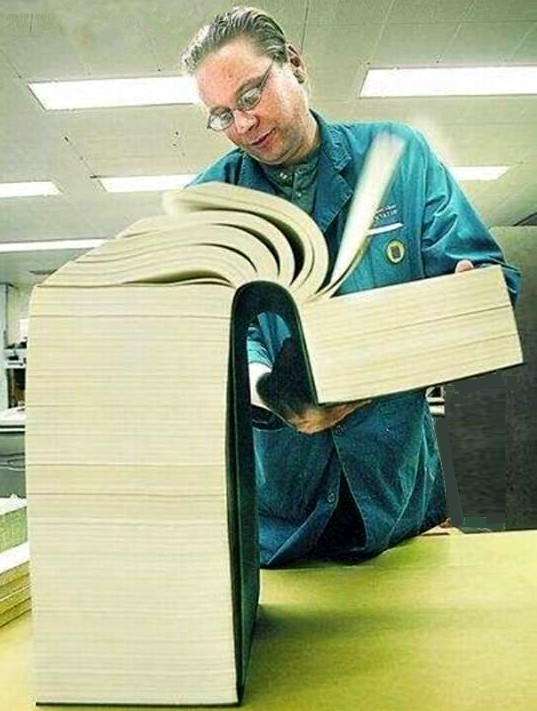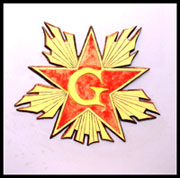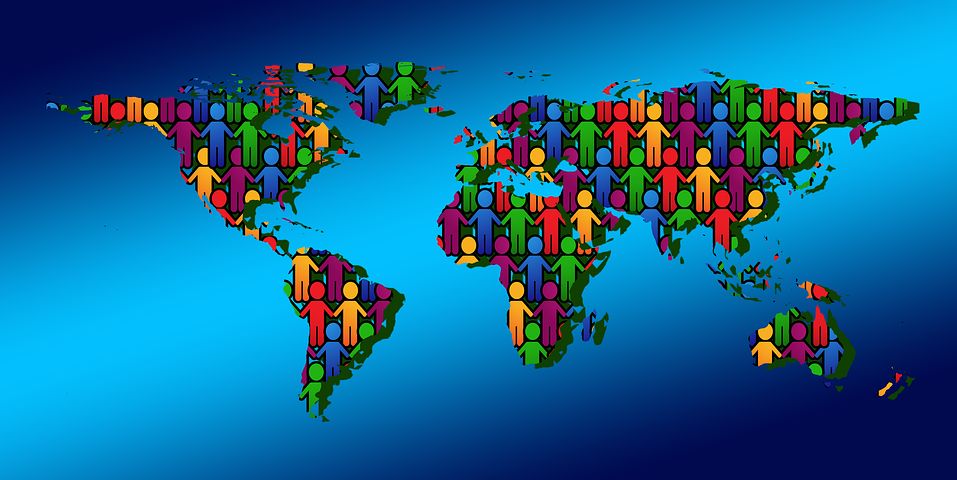Published by The Chain of Union, Paris, No. 2, 1997, in French, and in 2002 in a special English edition. This version is slightly revised.
The question seems absurd. It may be ironic, sceptical or misguided, even though every one of us has asked ourselves this question at one point or another and probably still does from time to time. Should it be discussed here? There are two possibilities: either our Respectable Lodge knows the answer and we do not need to raise the question again, or we have our doubts. But in case of doubt, we need only to turn to the rites, to think about what is around us during our work and observe our behaviour to understand. The answer lies herein and it is convincing.
However, the rites, the Temple, our attitudes and gestures are languages, and languages must be learned to be understood. Contrary to popular belief, such learning is a never-ending process. A language that we have assimilated but do not use often enough is quickly forgotten. I should add, “do not use actively enough,” because it is not sufficient, for example, to turn on the radio and listen to a flow of English, German or Russian speech, our minds preoccupied with other things, without trying to understand, without actually thinking in the words of the language itself.
 Thus, from time to time, it is worthwhile to return to the very “alphabet” of our various Masonic languages, to review our “vocabulary” and clarify the “rules of grammar.”
Thus, from time to time, it is worthwhile to return to the very “alphabet” of our various Masonic languages, to review our “vocabulary” and clarify the “rules of grammar.”
I speak of languages in the plural, as there are at least three forms: Our body language (the initial learning that occurs through physical action, thus through attitudes and behaviour). The language of emblems, allegories and symbols (which speaks to our intuition, imagination and feelings). The language of words, which are structured according to rational rules accepted by all (intended for our minds).
We need to bear two things in mind to better understand the purpose of a Masonic lodge: What is a Temple? What is a gathering of Masons?
A Masonic Temple is a representation of the universe. The sun, the moon, the stars in the heavens, the allusion to the earth through the plumb line, the rough stone and raw metals, the references to the four cardinal points and so on, all exist to remind us of this constantly. It is a closed world, cut off from all others. There is no window, or – when one does exist, such as on the lodge carpet – it is closed. For Freemasons, the universe is bounded and closed.
A Masonic Temple is also a representation of human society. Indeed, the Temple is not only the built space that surrounds us, but also all of the Brothers and/or Sisters who populate it. The rites performed at each Assembly remind us that the Masonic movement was created to bring together all men of value, without any discrimination based on race, status or beliefs, and thus heralds a new and harmonious humanity working together in brotherhood. The lodge structure, with its leaders, wardens and workers, is based on the way that all human societies are organised.
A Masonic lodge has a hierarchy like secular societies and, at the same time, conveys the ideals of liberty, equality and fraternity for all. This may appear to be contradictory. The dignitaries of a lodge have certain powers, and all their Brothers and/or Sisters owe them respect. It is no accident that the Worshipful Master uses the formal “you” (“vous” form in French) when addressing his officers. We can all, however, speak freely with each Brother and/or Sister, independent of his rank or any other criteria. This equality, which completely overlooks the diversity of our social or Masonic standing, is symbolised by the right to carry a sword. (There was time in the secular world when only aristocrats had the right to bear arms; in the lodges, they shared them freely with their Brothers).

Ceramic Pavel KamirFinally, the Temple is a representation of each of us as human beings, because we are not only a piece of the universe and a piece of humanity, but we also constitute an entire universe unto ourselves. By stating that man is a universe, I am obviously referring to the fact that each of us is composed of billions of genes, cells and neurons; each of us is home to countless living organisms and that this incredible diversity – comparable to the diversity of humanity and the earth, with all that it shelters and nourishes – is perfectly organised.
The Temple, therefore, is both a representation of the universe, of humanity and of mankind. It serves as a powerful reminder of our connection to others and the ties that bind us to earth and to worlds beyond our planet.
Another feature of the Masonic Temple is the fact that it symbolises the universe, humanity and mankind of all time, and is hence timeless.
Time exists, the sun rises, moves through the sky and sets… but this is circular time, like our movements during work. At each moment, the unchanging rhythm encompasses the entire history of the universe; it includes the past and present of all human societies and sums up the totality of our personal history from the first moment to the last.
The objects that surround us are disparate in their place and time of origin. This heterogeneity is deliberate and significant. Even our behaviours refer to different civilisations from the past and present. Finally, the ritual texts are inspired from the same diverse sources. Hence, we are simultaneously in ancient Egypt, Jerusalem, in the Catholic, Jewish or Protestant Bible (despite our firm secular beliefs); and sometimes even in India or in China. We are living in the Middle Ages, The Age of Enlightenment and during the French Revolution all at once, while retaining a clear view of the present-day world, which also strongly impacts our rites and rituals.
Within the Masonic Temple and among the Brothers and/or Sisters at our Respectable Lodge, we find ourselves somewhere outside of time and space.

However, we have not escaped from the world. On the contrary, the Temple, this “scale model” helps us to better understand mankind, humanity and the world in which we live. And most of us came to Masonry to find a tool that would help us to better serve mankind and society. This is especially true for Brethren and Sistern in the Grand Orient of France, a lodge well known for its social and political concerns. But how is it possible to act within the world by removing ourselves from it? This apparent paradox often presents a nagging issue during the first years following initiation. It assails us each time that our lodge or we are overly forgetful of the nature and possibilities of the tools we have available, and when we expect something from Masonry that it cannot provide. It torments us most when the secular society goes through severe crises and we feel powerless to help. But we must not forget that it is sometimes necessary to step back a bit to leap even farther ahead.
How can a Masonic lodge help us?
First of all, it helps by allowing us to distance ourselves from our everyday concerns, to detach ourselves from the secular world, to liberate ourselves. Coming to the lodge helps us find balance, to gain a stronger sense of serenity; it is an act of mental cleansing. But above all, Masonry offers us an excellent opportunity to savour and enrich ourselves with the diversity of mankind. We turn again to apprenticeship; it is a kind of university for adults. Through the symbols, rites and, of course, the work of our Brethren and/ou Sistern, we better understand our past, our present and our prospects, both on an individual and collective level. We learn to put things into better perspective and find our own place within the community of man.
In this regard, the lodge can be particularly useful to us. It is not easy to understand our own value in relation to that of others. As children, we represented “everything” to our families, and then as we grew up, we suddenly shifted from the “centre of the universe” to its most distant edge, from the warmth to the cold, from a sea of love to an inhospitable land of indifference. Much of the pain of adolescence is due to this. By providing us with a chance to learn to “love ourselves and others” – a ritual phrase – Freemasonry helps us become more balanced.
Finally, it leads us to recognise that all humans are Brothers. We develop our ability to be mutually supportive. This apprenticeship occurs not only through our minds but also through our bodies, to such a degree that it becomes a series of reflex actions. It is no coincidence that people say Freemasons can be recognised by their behaviour, such as observing their way of listening to other people, for example.
With this in mind, we are ready to work together, despite – and especially thanks to – our incredible diversity. We no longer need to waste our energy by treating those who think differently from us with contempt. We are no longer tempted to fight against their ideas, but instead are ready to defend our own, while realising that they are relative. We therefore become more open to discussion, capable of seeking a consensus, then participating in the construction of the universal Temple. It is no coincidence that Freemasonry is called the “school of democracy.” Democracy is the guiding principle of a lodge’s operation and therefore offers the possibility of studying it in practice, understanding it and assimilating it. By participating in the works of a lodge, we better understand the structures of democracy, the specific natures of its “struggles” for power, its weaknesses and its strengths. These last two – weaknesses and strengths – result from the diversity of men and of human nature, which do not seem predestined to this type of social organisation. Nevertheless, democracy still seems to be “the worst of systems, except for all the rest,” in the words of Churchill.
A Masonic lodge created from this model then becomes a laboratory of ideas about mankind, our place in the world and even in the universe. It makes no demands for productivity or otherwise, and is therefore a place for fundamental research. Each person pursues his own individual studies and contributes to those of fellow Brethren and/or Sistern. Yet the lodge also works collectively, as a single entity or with other lodges and sometimes with the entire Grand Orient, particularly to examine pressing philosophical, ethical and social issues. Hence, some people devote themselves to a metaphysical quest, while others pursue scientific inquiries and still others examine issues of justice. (Incidentally, the large number of lodges further increases the variety of subjects and number of methods employed in this diverse research. The problem does not lie in reducing the number of obediences, but improving relations, communication and cooperation between them.) In all of these fields, the lodge has an advantage over professional “researchers” and scientists dealing with similar subjects in laboratories. Even if a lodge is a less specialised “laboratory,” the extraordinary diversity of knowledge and experience of its members creates a situation that fosters new solutions as well as offers an opportunity for testing them, to predict secular society’s possible reactions to an innovative proposal. By enriching each one of us, the Masonic lodge therefore prepares us for action outside of it by making the results of the work available.
After assimilating the nature of the lodge and the “techniques” it uses – and only from this moment – can we move beyond our isolation, return to secular society and be more useful than we would have been without Freemasonry. It is unusual for us to act as a lodge, as there are so very few occasions that allow us to do so effectively. Masonry was not designed to get involved in the administration of the outside world, and it is not equipped to do so. Yet even if we work as individuals outside of the Temple, we are no longer alone.
This is the strength that Freemasonry represents.
Peter Bu

................................
http://modern-freemasonry.com was created to promote the free exchange of ideas on Freemasonry.
This free-flow of ideas was prevented by 50,000 contributions that had nothing to do with Freemasonry, wanting only to use this site for advertising.
I've cleared all this pollution to enable relevant conversation to resume.
Thanks in advance for your thoughts on topics that interest the Freemasons.






